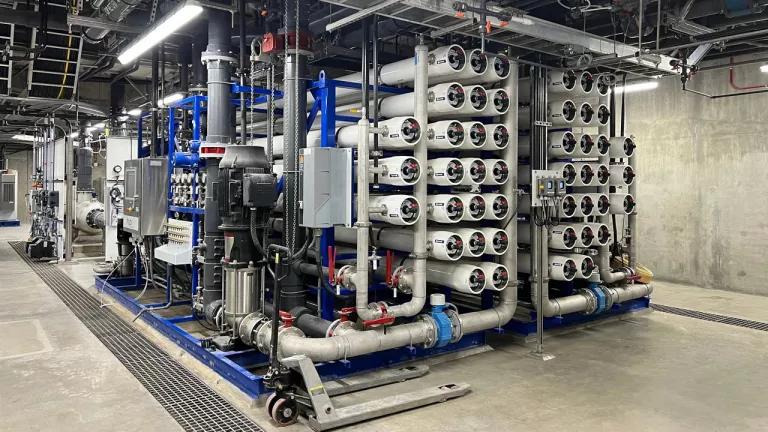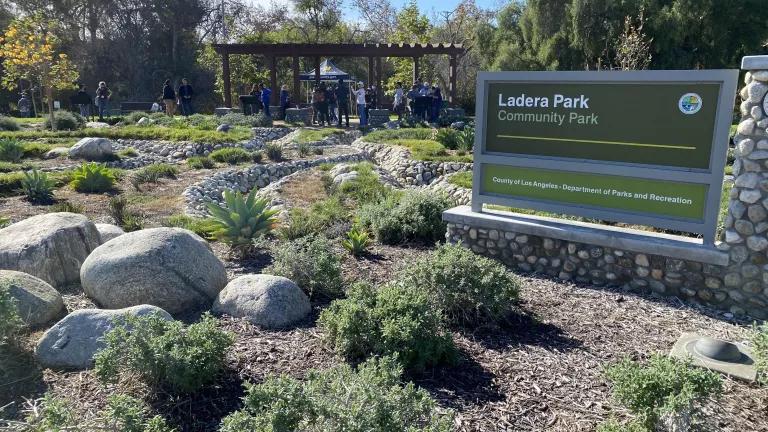Last week, I attended World Water Week in Stockholm, Sweden. At international conferences like this, one can feel somewhat overwhelmed by the magnitude of the problems facing humanity, particularly when presented with these oft-cited statistics: 800 million people on the planet lack an improved water supply, 1.3 billion people lack electricity, and 2.5 billion people lack improved sanitation like a toilet.
But at this year’s conference I found myself inspired by the commitment of people everywhere to find solutions to these problems – whether tackling irrigation practices in Africa or improved efficiency for home heating in Central Asia.
This year’s topic was the water-energy nexus – and how that interrelationship underpins so much of our modern living. Our energy systems depend heavily on water – for power plant cooling and fuel extraction, among other things. Meanwhile, our water supply depends on energy for things like transport, pumping, heating, and treatment.
This relationship has its benefits because it means that saving water saves energy – and vice versa. For example, leaving the water on for five minutes while you brush your teeth is the same as leaving a 60 watt light bulb on for 22 hours. Most people I know are pretty good about turning off the lights when they are not in use. But turning off the tap is still a new concept to some, even though it is just as simple a task.
Of course, many water-energy challenges are much more difficult than just turning off the lights or a faucet. Indeed, too many people around the world don’t have a light or faucet to turn off in the first place.
Yet, while there may have been a great disparity in resources between the nations represented in Stockholm, there was a common desire to improve quality of life and human health. And even in developing countries, like Tajikistan where some households may only have three hours of electricity in winter, there was recognition that we are all interconnected with each other – and that our well-being is dependent on the well-being of our surrounding environment.
I was struck in one session by a video of a man in India digging a water canal with only his hands and a shovel – the same way his ancestors may have done a thousand years ago – until his cell phone rang, interrupting his labors. The contrast between the levels of technology at play in that scene was quite remarkable and reminded me of another session wherein Michael Taylor from IRENA made the observation that for upward of a billion people their first exposure to electricity should be from renewable energy like wind and solar as opposed to dirtier, water-intensive sources like coal. That expectation hardly seems unreasonable when one considers that millions of people’s introduction to the telephone has been via cellular technology as opposed to old landline technology. Why can’t it be the same for our energy and water choices?
We all know people need clean water, but how do we go about providing it? Is it a question of political will or of political “skill,” as one woman from the Middle East asked. Many politicians want to do the right thing – or at least they say they do – but they just don’t know how to politically accomplish it given the vast diversity and complexity of interests involved.
Previously, Dr. Vandana Shiva has said, “Why must India’s future be America’s past?” Indeed, hindsight is 20/20, and we all should use it more often.
Peter Gleick of the Pacific Institute noted that to resolve these issues we must understand to whom the benefits accrue. Until we understand the answer to that question at a holistic level we may not solve many of these problems or even identify how the available solutions – and there are plenty of them – can be funded and deployed.
Professor John Briscoe invoked Mike Tyson in noting that everyone has a plan until they get punched in the face – and that’s when most communities mobilize in a serious way. Even so, many communities around the world are getting pummeled by water challenges. What happens when those punches knock you out – like when climate change comes knocking at your door? It’s hard to react when you’re out like a light. In that case, good planning might just be the only thing that helps you avoid getting punched in the first place, as Professor Bob Wilkinson observed.
Development is often about tradeoffs. But it can be about synergies instead of conflicts. It can be about embracing commonalities and rejecting rigidity and outdated methods. Through lessons already learned, we can leapfrog obsolete and myopic solutions and find a better path forward. And in doing so we should not and cannot take the environment for granted as we try to address these many challenges both here in the US and in partnership with others around the world.




